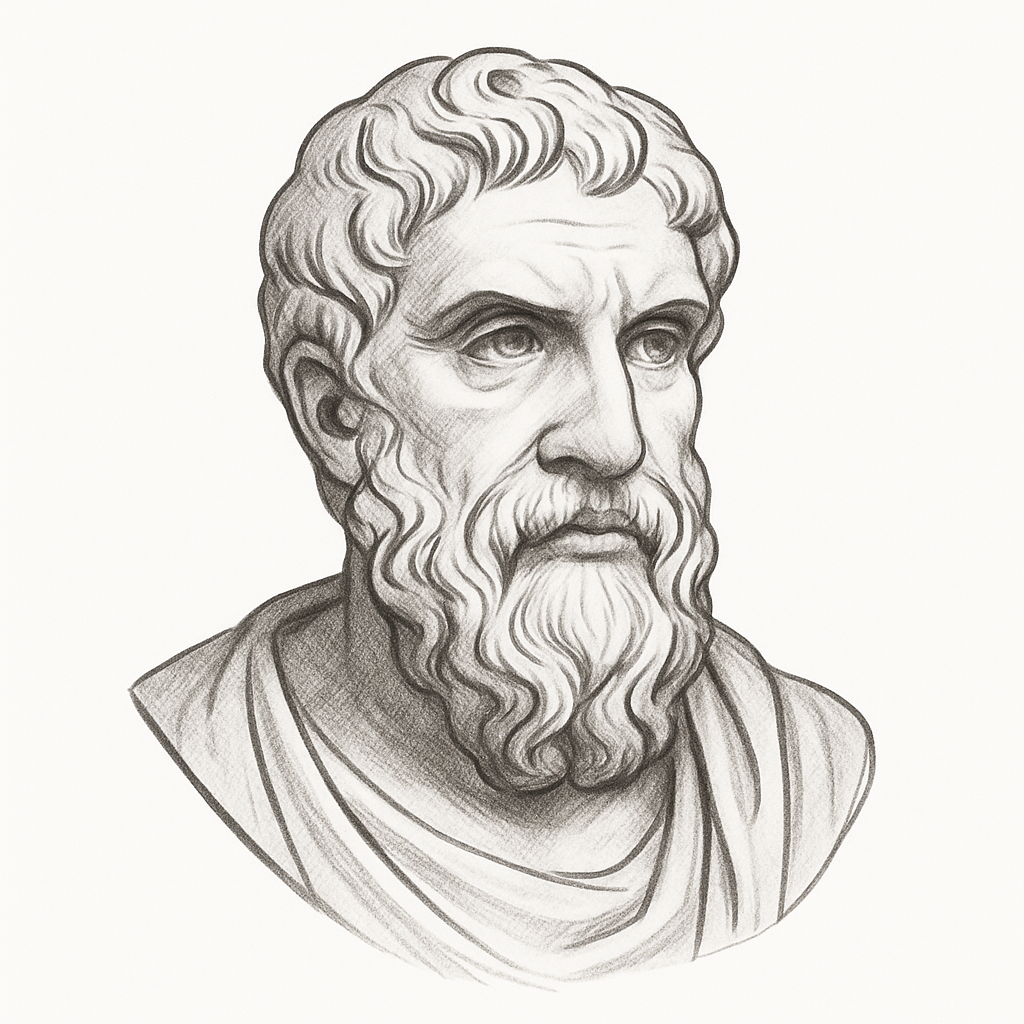Stoic Virtues
In Stoic philosophy, the cultivation of virtue is considered paramount, serving as the sole path to a flourishing life. This pursuit is framed entirely within the Stoic principle of control, as virtue resides within one's own character and actions, making it an internal good that is impervious to external circumstances. The traditional four cardinal virtues often discussed are wisdom, courage, temperance, and justice, all of which are important for shaping one's internal state.
The importance of virtue stems from its intrinsic value and its inherent alignment with what is within an individual's control. Virtue is understood as the perfect good of the human mind, with philosophy serving as "the love of wisdom, and the endeavour to attain it" (Seneca, Moral Letters to Lucilius, Chapter 89). True joy is cultivated from within by focusing on one's character and virtue, rather than seeking it from external sources (Seneca, Moral Letters to Lucilius, Letter 23). This internal focus means that virtue and greatness of soul are self-derived, rendering it "foolish to seek from others what you can provide for yourself" (Epictetus, The Discourses, Book 1, Chapter 9). Furthermore, the Stoic perspective asserts that the "reward for all the virtues lies in the virtues themselves. For they are not practised with a view to recompense; the wages of a good deed is to have done it" (Seneca, Moral Letters to Lucilius, Chapter 81). This intrinsic reward contrasts with the material success of others, which, though seemingly advantageous, is gained by cultivating traits one would not choose, whereas cultivating virtue yields a superior reward (Epictetus, The Discourses, Book 3, Chapter 17). Adversity itself is reframed as an opportunity to display virtue, becoming not a misfortune if it does not prevent an individual from being "just, brave, and temperate" (Marcus Aurelius, Meditations, Book 4). External events are not inherently evil; the only true evil lies in surrendering one's virtue to them (Seneca, Moral Letters to Lucilius, Chapter 85).
The cultivation of virtue is approached as an ongoing process, requiring deliberate effort and practice. It is not a natural state of innocence but "an art to be learned and perfected through practice" (Seneca, Moral Letters to Lucilius, Chapter 90). This pursuit involves seeking "how we may attain the virtues, and finding the path which will take us in that direction" (Seneca, Moral Letters to Lucilius, Chapter 113). Several methods are advocated for this cultivation:
- Philosophical Study and Practical Application: It is essential to prioritize philosophical lessons that offer "a direct, practical application to improving your character over purely theoretical debates" (Seneca, Moral Letters to Lucilius, Chapter 109). This suggests that understanding the principles of wisdom, for example, is best achieved through applying them to one's life.
- Observation and Emulation: Individuals are encouraged to "develop your understanding of virtue by observing the admirable actions of others" (Seneca, Moral Letters to Lucilius, Chapter 120). This includes drawing "inspiration from historical examples of courage and virtue to strengthen your own resolve against hardship" (Seneca, Moral Letters to Lucilius, Chapter 98). By modeling one's character on the highest virtues such as faithfulness, freedom, and beneficence (Epictetus, The Discourses, Book 2, Chapter 14), one actively internalizes these qualities.
- Virtuous Companionship: Surrounding oneself with others who embody virtuous traits is also beneficial, as one should "seek out virtuous companions to practice and maintain your own moral excellence" (Seneca, Moral Letters to Lucilius, Chapter 109).
While the notes generally discuss "virtue" as a unified concept, they do allude to specific components. For instance, wisdom is presented as the ultimate goal of philosophy (Seneca, Moral Letters to Lucilius, Chapter 89), implying that its cultivation involves intellectual effort and practical application. Courage is explicitly mentioned as a virtue from which to draw inspiration (Seneca, Moral Letters to Lucilius, Chapter 98), with the acknowledgement that "the courage to endure pain is as praiseworthy as the wisdom to enjoy peace" (Seneca, Moral Letters to Lucilius, Chapter 66). Cultivating fearlessness by recognizing the non-evil nature of external events contributes to courage (Seneca, Moral Letters to Lucilius, Chapter 85). The mention of being "just, brave, and temperate" in the face of adversity (Marcus Aurelius, Meditations, Book 4) directly references justice and temperance as crucial aspects of one's character that remain under personal control, regardless of external challenges. All virtuous acts are considered equal in their intrinsic value (Seneca, Moral Letters to Lucilius, Chapter 66), reinforcing the idea that wisdom, courage, temperance, and justice are all integral, interlocking facets of a perfected moral character, each cultivated through consistent internal effort and practice.
Key Passages
Why do we not rather discuss something which is useful and wholesome to ourselves, seeking how we may attain the virtues, and finding the path which will take us in that direction?— Moral Letters to Lucilius by Seneca
Wisdom is the perfect good of the human mind; philosophy is the love of wisdom, and the endeavour to attain it. The latter strives toward the goal which the former has already reached.— Moral Letters to Lucilius by Seneca
The reward for all the virtues lies in the virtues themselves. For they are not practised with a view to recompense; the wages of a good deed is to have done it.— Moral Letters to Lucilius by Seneca
Disclaimer: Article generated using Memento Vivere AI tool, and is grounded solely in the works of Epictetus, Seneca and Marcus Aurelius. For informational purposes only. Not a substitute for professional advice.
